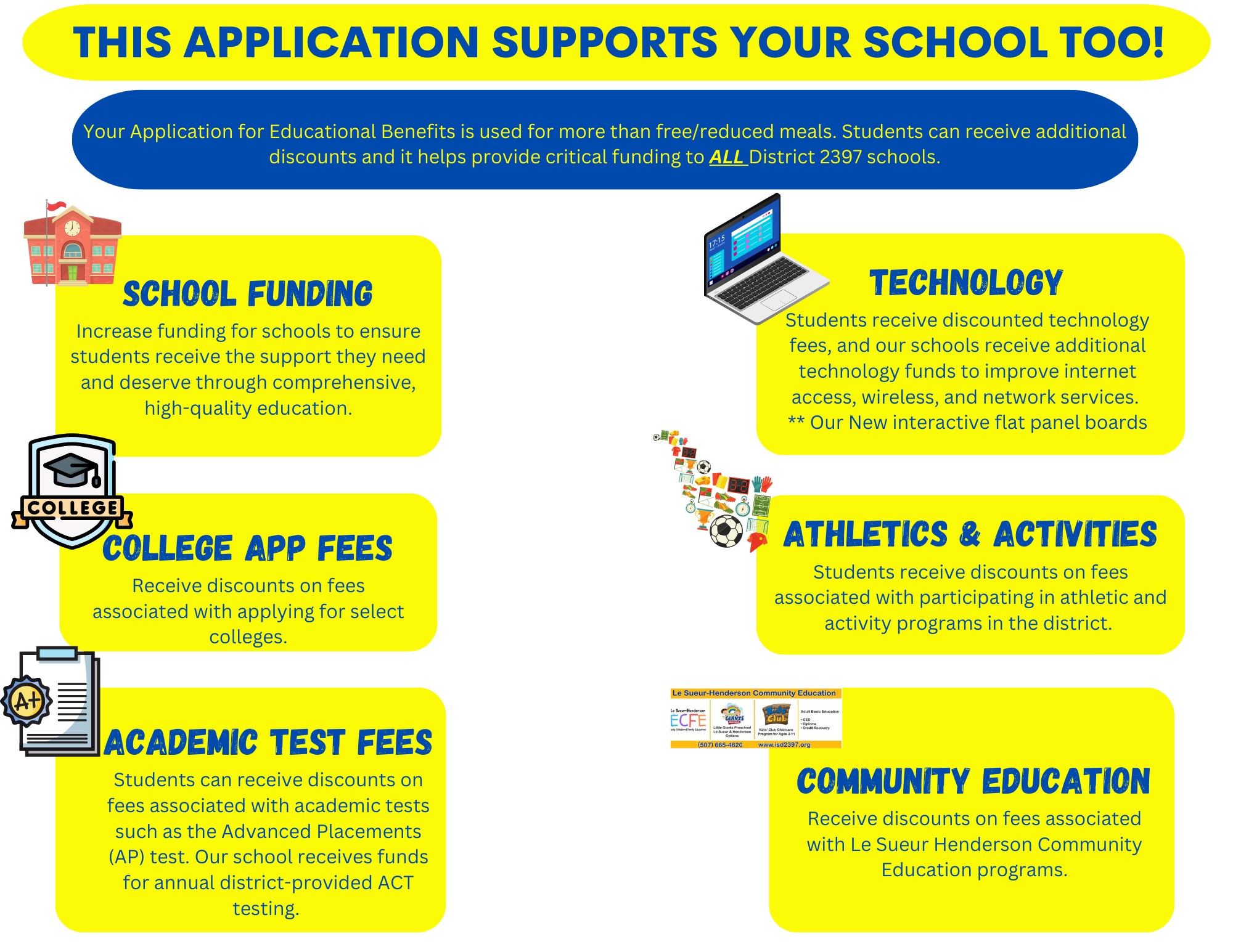What are your Educational Benefits?
Schools participating in School Nutrition Programs accept applications for Educational Benefits anytime. Approval is based on a comparison of the household’s income to current U.S. Department of Agriculture (USDA) household income guidelines. Schools send an Application for Educational Benefits form to the households of all enrolled students at the beginning of each school year. A letter accompanies the form and explains school meal benefits and how to apply.
Households that have already been approved for the following public assistance programs can complete an Application for Educational Benefits using case number(s) instead of household income information:
Supplemental Nutritional Assistance Program (SNAP)
Minnesota Family Investment Program (MFIP)
Food Distribution Program on Indian Reservations (FDPIR)
To learn more about this program> https://education.mn.gov/MDE/dse/FNS/SNP/proc/App/

Apply Online
APPLY ONLINE!
The Application for Educational Benefits is available online in the Infinite Campus Parent Portal. Note you must have a parent portal account to apply online. If you need access, please get in touch with the district office at 507-665-4600.
Online Steps:
Log into your Infinite Campus Parent Portal
Choose "More" in the menu
Choose "Meal Benefits"
Follow the steps to complete the application.
Submit Paper Application
Paper applications should be returned to the Le Sueur-Henderson Public Schools District Office.
Drop off In Person:
District Office
115 1/2 N 5th Street,
Le Sueur MN 56058
Mail:
Le Sueur-Henderson Public Schools
115 1/2 N 5th Street, Le Sueur MN 56058
Email:
Rachel Scheffler
rscheffler@isd2397.org
Questions
Call the District Office at 507-665-4600
Learn More
Would I qualify?
The income thresholds in these programs are higher than in other programs, so many families are surprised to find they do qualify.
APPLYING BENEFITS THE SCHOOL TOO!
Free or reduced lunch benefits serve as a crucial support system for students from low-income families, ensuring that they receive nutritious meals during the school day. These programs, often funded by federal and state governments, aim to alleviate food insecurity among students, which can significantly impact their academic performance and overall well-being. Schools can help improve students' concentration, energy levels, and attendance by providing access to healthy meals, ultimately fostering a more equitable learning environment.
Conversely, compensatory revenue refers to additional funding provided to schools to support students at risk of failing academically. This revenue is typically allocated based on the number of students eligible for free or reduced lunch benefits, as these students are often identified as needing extra educational support. Compensatory revenue can be used for various purposes, such as hiring additional teachers or support staff, implementing targeted intervention programs, and providing necessary resources and materials to enhance the educational experience for these students.
The intersection of free or reduced lunch benefits and compensatory revenue creates a comprehensive approach to addressing the needs of disadvantaged students. By ensuring that students have access to nutritious meals and additional academic support, schools can create a more inclusive and supportive environment that promotes success for all students, regardless of their socioeconomic background. This holistic approach helps close the achievement gap and empowers students to reach their full potential, contributing to a more equitable society.
